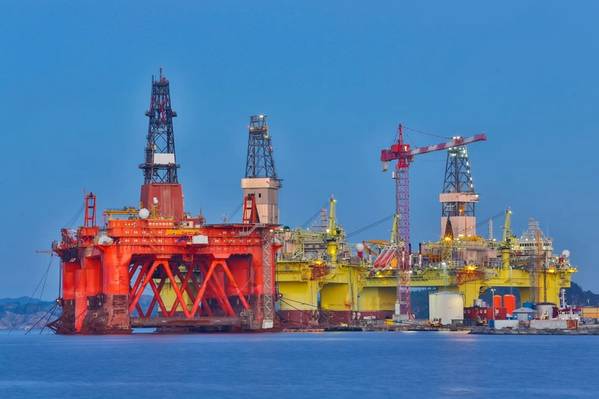
Greenpeace and its partners on Monday asked Norway's supreme court to rule on the legality of the country's Arctic oil and gas exploration licenses, in a case that could block the petroleum industry's expansion plans.
If the supreme court takes up the case, the decision is likely to determine whether oil firms can search for hydrocarbons off northern Norway, where authorities believe billions of barrels of oil could be found.
Two lower courts have found the government's plan to drill was legal, rejecting the environmentalists' claim it breached people's constitutional right to a healthy environment. If, as expected the court takes up the case, it would hear it this year or next and its decision would be the final word. First, a formal process has to be followed involving the appeal court, a spokesman said.
The case, led by Greenpeace and Nature and Youth, the country's largest environmentalist youth organization, says exploration would lead to higher emissions of climate-warming carbon dioxide. The groups targeted the government's 2015-2016 licensing round, in which 13 companies were granted licenses, including state-controlled Equinor.
"Opening up the pristine areas in the Arctic for oil drilling in the time of a climate emergency is not acceptable," Greenpeace Norway chief Frode Pleym said in a statement.
Norway is western Europe's largest oil and gas exporter. Its reserves helped to make it one of the world's wealthiest nations in the half-century since petroleum was first found within its territorial waters. Most of its production is from the North Sea and the Norwegian Sea, located south of the Arctic, but more recent developments have seen the exploration and production in the far-north Barents Sea.
The environmental lawsuit is part of an emerging branch of legal action worldwide, where plaintiffs seek to use a nation's founding principles to make the case for curbing emissions.
The green groups cited article 112 of Norway's constitution, which guarantees the right of current and future generations to a healthy and sustainable environment, as well as Norway's commitments to reducing emissions under the United Nations climate agreement. The government said its decision to grant exploration permits in the contested 23rd licensing round were lawful, and that it was for the parliament, not the courts, to decide future exploration.
Oil companies have already drilled exploration wells in some licensed areas, but have not made any significant discoveries.
Aker BP plans to drill a well later this year. Beate Kristine Sjaafjell, a law professor at the University of Oslo, told Reuters she expected the supreme court to answer "the big question" of whether Norway's decision to continue exploration was in line with its international climate commitments.
(Reporting by Nerijus Adomaitis; editing by Terje Solsvik and Barbara Lewis)